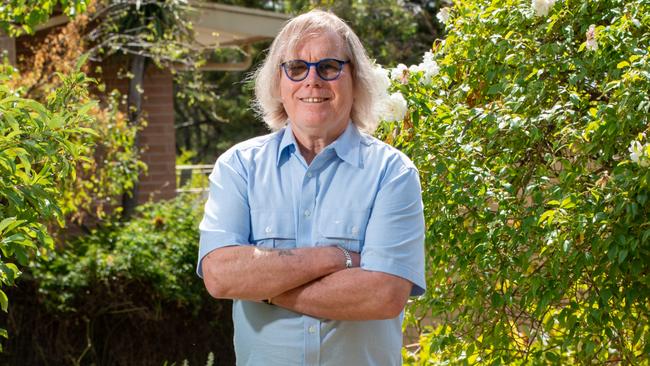Investment advice: how going global lowers your risk
International shares have fallen further than Aussie stocks so far this year, but things can change fast, and diversification pays off.
Sinking global stockmarkets are offering potential bargain buys to Australians now as technology makes it faster and cheaper than ever to become an international investor.
At just 1.7 per cent of the global economy, Australia is small compared with the US, China, Japan and Germany, and investment specialists say it’s wise to diversify money offshore.
Your super fund already does this, with data from industry super group ASFA showing 27 per cent of Australians’ nest eggs are invested in global shares, and 24 per cent in Aussie shares.
Investors can go global by buying direct shares through full-service or online stockbrokers, online services such as Stockspot, eToro and Stake, managed funds and exchange traded funds (ETFs).
However, they should understand that international shares increase investors’ financial rollercoaster ride, delivering new twists such as currency fluctuations and geopolitical impacts.
Market analysts have different views about whether stocks are now cheap or more heavy falls are certain, but over the long term international shares have performed strongly.
Financial strategist Theo Marinis says investing globally delivers greater diversification, especially when you consider 40 per cent of Australia’s stockmarket is resource companies and banks.

“And if you just invest here, you have no exposure to Tesla, Alphabet (Google), Amazon and others,” he says.
Marinis suggests splitting share investments half-and-half between Australian and international options. “We use ETF index funds – they are the most cost-effective and hassle-free way to invest overseas,” he says.
ETFs have boomed in the past decade in Australia, and a new ETF report by online investment adviser Stockspot says a record $23 billion poured into them locally in the past year.
“However, ETFs still only make up around 4 per cent of the total funds market in Australia, compared to 25 per cent in the US,” it says. “We believe there’s a lot further to go.”
Stockspot’s report recommends investors focus on broad market index ETFs rather than sector-specific and thematic ETFs, which “are launched when the hype is at its peak” then underperform.
ETF returns are boosted by their low costs, and Stockspot CEO Chris Brycki says there’s no need to pay high fees to professionals “when you can own the index”.
“Don’t pay a fund manager 1-2 per cent per year or performance fees to invest in global shares since 97.5 per cent do worse than the index,” he says.
“We don’t recommend investing in global shares unless you’re planning to invest for at least three years.
“Your investment horizon and capacity to take risk will determine how much to invest globally. For Stockspot clients we recommend between 20-30 per cent of their portfolio.”

Shaw and Partners senior investment adviser Jed Richards says in previous decades it was difficult and expensive to invest globally amid high transaction costs and complex paperwork.
“We reserved it for our largest clients, but technology has moved extremely quickly in the last few years,” he says.
“Nowadays you can buy international shares for 0.15 per cent or less.”
Richards says his clients invest directly into global giants including Microsoft, Disney, Nike and Constellation Brands, which produces Corona beer, and he also uses ETFs.
His key message to global investors is: “look at the companies themselves rather than the individual share prices”.
“We know Microsoft will be a larger company in five years, because more people are using it. Buy a company for its performance, not the current share price level.”
Advisers often recommend that investors average into a stock over time, rather than going all in at once, as this smooths out returns and means you’re not buying at the peak.
Investor Erik Kasearu has focused heavily on ETFs – including international funds – since 2021 and is happy to ride the risk.
“I had none at all before – if I had bought Tesla shares 10 years ago, imagine that now,” he says.
“I would be driving a Tesla.” Shares in the electric car giant have jumped from $US6 to $US663 in the past decade but, highlighting their volatility, are down from $US1145 in January.
Kasearu likes index ETFs that spread money across many stocks and often rebalance automatically. “Data has shown that stockpicking doesn’t work as well as the algorithms do,” he says.
DISCOUNT MARKETS?
Global stockmarket indices have slumped this year, representing possible bargains for brave buyers.
• US down 21%
• France down 16%
• Germany down 15%
• Australia down 12%
• China down 11%
• Japan down 8%
• Britain down 2%
(Key share index moves 1 January to 14 June 2022)






To join the conversation, please log in. Don't have an account? Register
Join the conversation, you are commenting as Logout